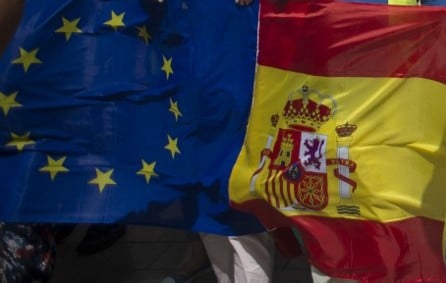As part of the ongoing ‘Check, Change, Go’ offensive, the British government has launched a public information campaign, aimed at British tourists heading for Europe.
The campaign is designed to “help British travellers prepare for changes when visiting Europe from January 1st 2021”. The campaign asks if you are “Going to Europe next year?” then proceeds to explain – not always clearly – the issues awaiting our friends and families that want to visit after Brexit.
Topics covered include passports, health insurance, driving documentation and travelling with pets.
The imminent changes will affect British tourists to Europe, as well as our travel arrangements when visiting the UK. They will certainly impact those with a toehold in both the UK and Spain, limiting the time that second homers can spend here.
The rules regarding passports – such as that we must have six months remaining to travel – are merely a slight inconvenience. Other changes will prove considerably more cumbersome and costly.
On arrival in Spain, or any other EU country, visitors from the UK will need to prove they have enough money for their stay. As EU visits will be time-limited, travellers will also need to produce a return ticket to prove their departure date.
It will only be possible to stay for 90 days in any 180-day period – that’s 90 days in Europe in total, not 90 days in Spain alone.
READ ALSO:
- How can British second home owners spend more than 90 days in Spain after Brexit?
- BREXIT: The money matters Brits in Spain need to consider
- REMINDER: What Brits in Europe need to know about travel after December 31st

So, those with second homes won’t be able to spend half the year in their Spanish bolthole if they also want to visit any other EU country in the same year. Problems will also be faced by “swallows”, who fly into Spain for the winter, frequently for more than three consecutive months.
Additional inconvenience and expenses will be generated by health insurance and driving permits.
The European Health Insurance Card (EHIC) only remains valid for British citizens until the end of 2020. Despite several assurances from the UK government, the Brexit negotiations have thus far failed to guarantee that the current EHIC is protected.
Suggestions that a similar scheme could be implemented “unilaterally” have seemingly disappeared. With the Brexit negotiating deadline looming, it’s unlikely that the EHIC card is high on the government’s priority list, so private medical insurance will surely become the norm.
Older travellers, and those with pre-existing medical conditions, may be priced out of travel between the UK and Europe.
Thanks to the Withdrawal Agreement, legal British residents in Spain who qualify for the S1 – e.g. pensioners – will keep their existing EHIC rights. Likewise, people working in Spain who qualify for a Spanish EHIC will retain their access to healthcare cover in the EU and UK, even after the end of the transition period.
Driving between the UK and Europe will present additional challenges, especially for those who want to visit more than one EU country, as different permits may be required.
The current UK government advice is ambiguous – you “may” need extra documents, you “might” need an international driving permit, a green card or a GB sticker, so it’s a case of ‘watch this space’ for further information.
Many that choose to travel by car do so to facilitate travelling with pets. The EU pet passport scheme will be replaced by a new process that applies to dogs, cats and – weirdly – ferrets.
Until the Brexit negotiations are concluded, the final details are unclear. These largely depend on which category of “third country” the UK becomes. However, the process will certainly include a blood test, vaccination and inserting a data chip, which will take several months. Thankfully, quarantine will not be necessary for your pet, although it could be for you!
Mobile phone roaming charges will no longer be free for British tourists in Europe, who will end up hunting for the nearest venue with free WiFi or buying a cheap pay-go SIM in the destination country. Although other additional travel costs will be known upfront, unexpected phone charges could be a nasty surprise upon returning home. Those of us with Spanish mobile phone contracts will only lose this facility in one country. Our visitors from the UK, however, will lose it throughout Europe.
Thanks to the pandemic, international travel in 2020 has been significantly reduced. The Spanish tourism industry has suffered huge losses that are already hurting the economy, even before Brexit has a real impact on the travel sector.
It’s safe to say that the rhetoric about “sunny uplands”, and how nothing would change after Brexit, has been proven entirely false.
The cost to the UK of the failure to deliver Brexit has already exceeded years of EU contributions, with the worst yet to come.
The cost to Spain of making it more difficult and expensive for British travellers to visit will become clear over time.
The cost to us of having our family and friends visit less often will be the hardest price to pay of all.
By Sue Wilson – Chair of Bremain in Spain

READ MORE:
- OPINION: 'Just when Brits in Spain thought we could relax the next spanner is thrown in the works'
- Moving to Spain: Brexit and Covid-19 meant I had no time to say goodbye
- Brexit: How much money will Britons in Spain need to be legally resident?



 Please whitelist us to continue reading.
Please whitelist us to continue reading.
Member comments